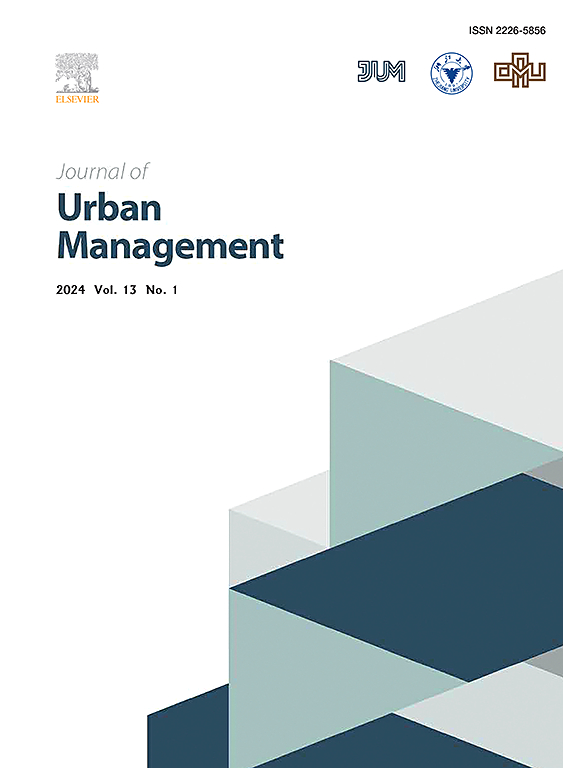Digital technologies in urban regeneration: A systematic review of literature
IF 5
2区 社会学
Q1 URBAN STUDIES
引用次数: 0
Abstract
Urban regeneration is a challenging intervention, considering the multidimensional issues involved and the complexities of stakeholder collaborations. While prior research indicates the potential of digital technology in addressing these challenges and introducing novel approaches to urban regeneration, the full scope of applying emerging digital concepts, including but not limited to geographic information systems, digital twins, artificial intelligence, and virtual reality to enhance urban regeneration still needs to be explored. We conducted a systematic literature review to address this gap, employing meta-analysis and bibliometric analysis. Six key aspects of urban regeneration were identified, including decision-making support, prioritization of areas of concern, stakeholder participation, regeneration scenario identification, design and implementation of regeneration actions, and post-regeneration analysis. We evaluated the impact of digital technologies across these dimensions, examining their interaction with critical urban regeneration domains through spatiotemporal analyses of published literature. Our findings delineate novel applications and benefits of emerging digital technologies throughout various stages of urban regeneration, from site selection to project evaluation. This study comprehensively appraises how urban regeneration processes can be enriched by leveraging innovative technological applications while also suggesting avenues for future digitally sustainable integrated approaches to urban regeneration.
城市更新中的数字技术:文献综述
考虑到所涉及的多维问题和利益相关者合作的复杂性,城市更新是一项具有挑战性的干预措施。虽然先前的研究表明数字技术在解决这些挑战和引入城市更新新方法方面的潜力,但应用新兴数字概念的全部范围,包括但不限于地理信息系统、数字孪生、人工智能和虚拟现实,以增强城市更新,仍然需要探索。我们进行了一项系统的文献综述,采用meta分析和文献计量分析来解决这一差距。本文确定了城市再生的六个关键方面,包括决策支持、关注领域的优先顺序、利益相关者的参与、再生方案识别、再生行动的设计和实施以及再生后分析。我们评估了数字技术在这些维度上的影响,通过对已发表文献的时空分析,研究了它们与关键城市再生领域的相互作用。我们的研究结果描述了新兴数字技术在城市更新的各个阶段的新应用和好处,从选址到项目评估。本研究全面评估了如何利用创新技术应用丰富城市更新过程,同时也为未来城市更新的数字可持续综合方法提出了途径。
本文章由计算机程序翻译,如有差异,请以英文原文为准。
求助全文
约1分钟内获得全文
求助全文
来源期刊

Journal of Urban Management
URBAN STUDIES-
CiteScore
9.50
自引率
4.90%
发文量
45
审稿时长
65 days
期刊介绍:
Journal of Urban Management (JUM) is the Official Journal of Zhejiang University and the Chinese Association of Urban Management, an international, peer-reviewed open access journal covering planning, administering, regulating, and governing urban complexity.
JUM has its two-fold aims set to integrate the studies across fields in urban planning and management, as well as to provide a more holistic perspective on problem solving.
1) Explore innovative management skills for taming thorny problems that arise with global urbanization
2) Provide a platform to deal with urban affairs whose solutions must be looked at from an interdisciplinary perspective.
 求助内容:
求助内容: 应助结果提醒方式:
应助结果提醒方式:


